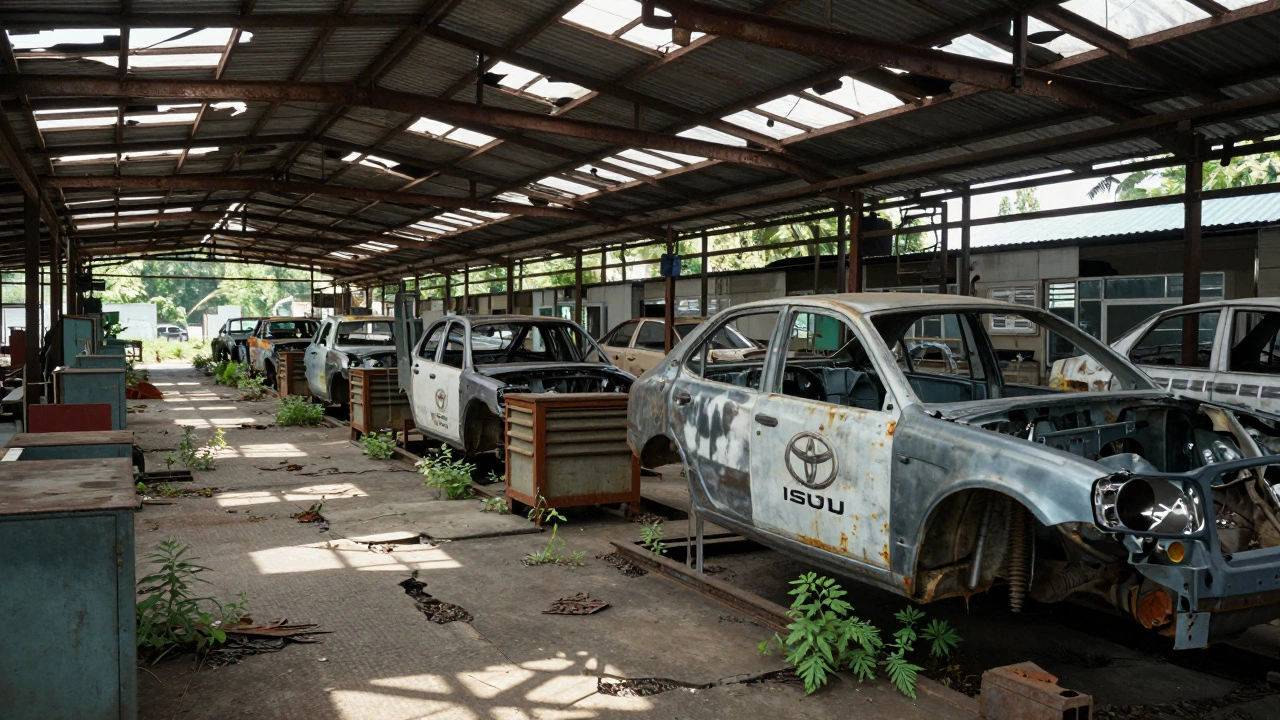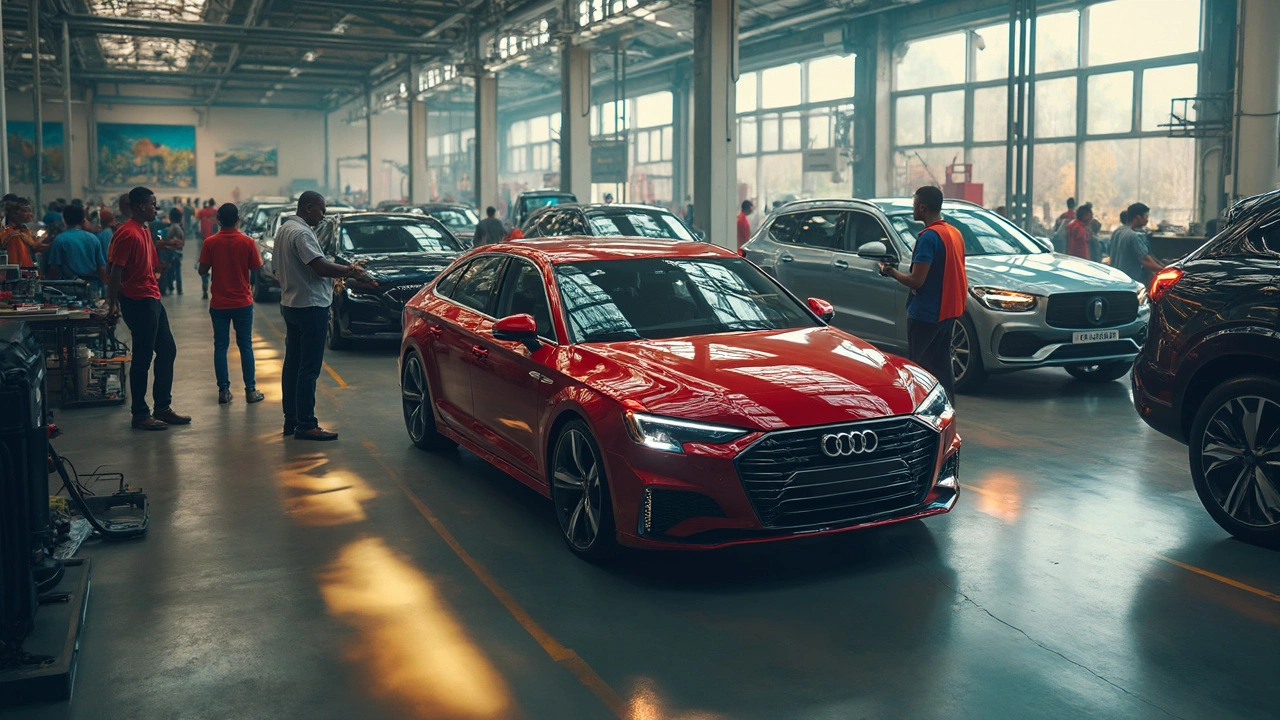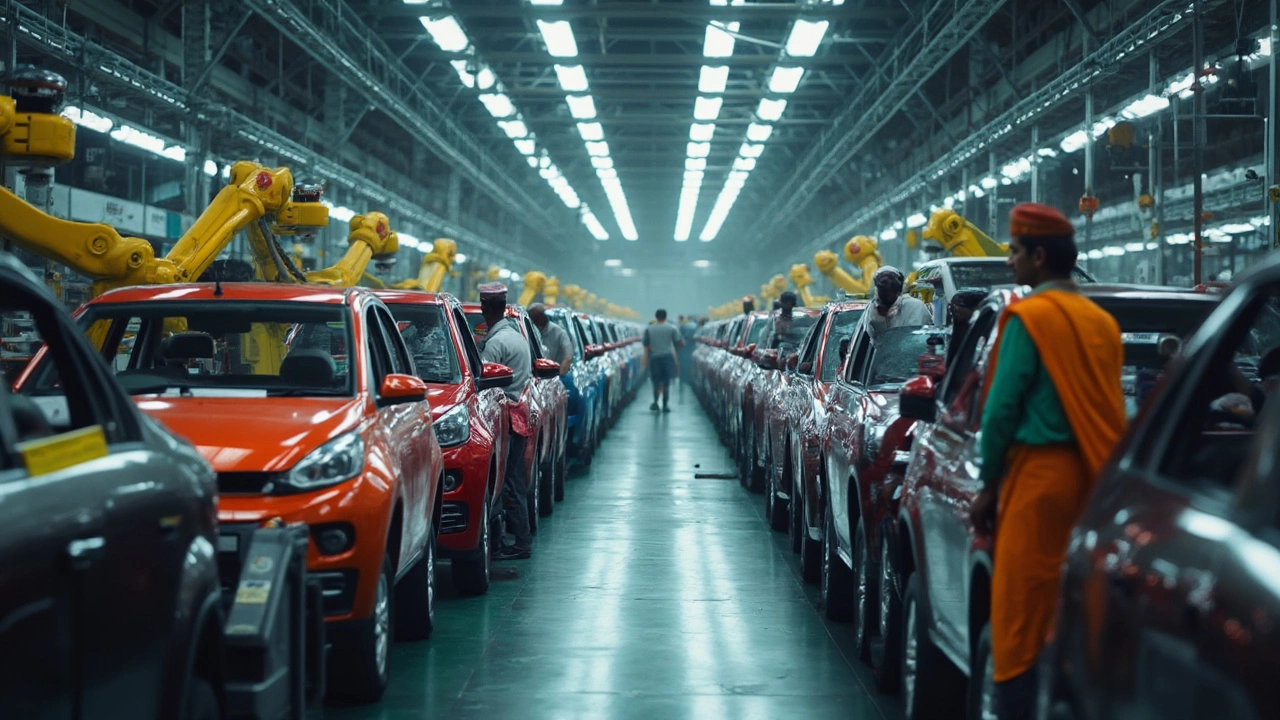Automobile Manufacturing in India – What’s Happening Now?
India’s auto industry is churning out more than 30 million vehicles a year, making it one of the world's biggest car makers. The market isn’t just big; it’s fast‑moving. New models, tighter emissions rules and a surge in electric‑vehicle (EV) plans are reshaping how factories operate. For anyone watching the sector, the key is spotting which changes will stick and which are just hype.
Domestic players like Maruti Suzuki and Tata Motors still dominate, but foreign brands are digging in deeper, especially in the EV space. Government incentives for clean tech and a growing network of charging stations are giving these newcomers a real push. At the same time, the push for Make in India means more parts are sourced locally, cutting lead times and import costs.
Key Trends Shaping Production
First, electrification is no longer a niche. Big players are rolling out hybrid and fully electric models faster than ever. That shift forces factories to add battery‑packing lines and revamp safety protocols. Second, automation is moving from a luxury to a necessity. Robots now handle welding, paint spraying and even quality checks, which speeds up output and reduces human error.
Third, sustainability is becoming a buying point. Consumers ask for lower emissions and greener materials, so manufacturers are hunting for recyclable plastics and lighter alloys. Lighter cars mean better fuel economy, which directly translates to lower running costs for owners.
Challenges and How Plastic Solutions Help
Cost pressure tops the challenge list. Raw material prices swing wildly, and any dip hits the bottom line. Using high‑quality, injection‑molded plastic parts can shave weight without sacrificing strength, allowing designers to meet safety standards while keeping costs in check.
Another hurdle is meeting stricter environmental rules. Traditional steel interiors add weight and are harder to recycle. Modern polymer components, when sourced from a reliable supplier, offer a closed‑loop solution: they’re lighter, easier to recycle and can be produced with less energy. Urban Polymers India provides such plastic solutions, combining durability with low‑carbon footprints.
Supply‑chain reliability also matters. A single delay in a critical component can halt an entire assembly line. Partnering with a plastic manufacturer that maintains a local production hub reduces shipping times and buffers against global disruptions. This local presence also means quicker design tweaks when a model needs a last‑minute change.
Finally, meeting consumer expectations for safety and comfort pushes manufacturers to innovate. Advanced polymers can absorb impact better than some metals, improving crash performance. They also allow for more ergonomic interior designs, giving passengers a smoother ride.
In short, India’s automobile manufacturing scene is evolving fast. Trends like electrification, automation and sustainability are redefining how cars are built. At the same time, challenges around cost, regulations and supply chains demand smarter material choices. By leveraging modern plastic components, factories can stay competitive, keep prices reasonable and meet the green standards shoppers increasingly expect.
Does Sri Lanka Produce Cars? The Truth About Its Automotive Industry
Sri Lanka no longer produces cars. Once involved in vehicle assembly, it now relies on used imports and a few small EV conversions. Learn why it can't compete with India's massive auto industry.
How Many Car Brands Are Made in India? Latest Count & Details
Discover how many car brands manufacture vehicles in India, their key stats, growth trends, and what drives brand presence in the Indian auto market.
Failed Car Models in India - Causes, Examples & Lessons
Explore why certain cars like Tata Nano, Mahindra e2o, Chevrolet Captiva, and Renault Fluence failed in India, the key reasons behind their downfall, and lessons for future automotive launches.
Car Brands That Failed in India: Lessons from the Auto Industry’s Big Flops
Explore why global car brands like Chevrolet, Fiat, and Ford failed in India. Understand market nuances, lessons, and tips for the Indian automotive landscape.
Largest Car Plant in India: Suzuki Motor Gujarat’s Massive Footprint Explained
Discover why Suzuki Motor Gujarat is India's largest car plant, how it operates, what sets it apart, and what that means for car manufacturing in India.
Most Popular Cars in India: Top Used Models and Why They Dominate
Wondering which car rules the Indian roads? Dive into India's best sellers, key reasons behind their success, and tips for car buyers.
Indian Cars Sold in the USA: What's Really Available?
Curious about which Indian cars make their way onto American roads? This article dives into the Indian auto brands you might spot in the USA, why you rarely see them, and what makes the market tough for Indian manufacturers. Get real facts about market barriers, recent attempts, and the models that actually landed. You'll even find some tips for Indian car buyers and eco-friendly enthusiasts.
Are Any Cars Made in China Sold in the US? The Surprising Truth
Ever wondered if cars made in China are actually sold in the US? This article digs into which Chinese-made cars are hitting American roads, why big car companies are building in China, and how tariffs and politics shape what gets sold. You'll get concrete examples, surprising facts, and find out how this all matters for buyers and automakers. If you're curious about the global car industry or thinking of buying a new car, you’ll find practical info right here.
Which Car Is Manufactured in Africa? The Surprising Boom Beyond India
Africa is making its mark in the car manufacturing scene, with several countries rolling out cars for both local and global markets. This article explores the top cars produced in Africa, the companies behind them, and how these local industries compare with India’s giants. You'll learn which models are built on African soil, what this means for the future of the global car market, and how local manufacturers overcome unique challenges.
What Car Brand Is from Japan? A Quick Guide for Indian Car Lovers
Thinking of buying a trustworthy car? Japanese brands have a reputation for reliability, innovation, and strong resale value in India. This article gives a no-nonsense breakdown of Japanese car makers, their presence in India, and what makes them so popular. You'll get concrete tips on how to spot a Japanese brand, what sets them apart, and why buyers often choose them. Let's make sense of Japan’s top car companies and their big impact on our roads.
Can I Buy a Car in the US and Bring It to India?
Thinking of buying a car in the US to bring to India? Here's what you need to know about the importing process, including regulations, customs duties, and tips for smooth shipping. Importing a car involves understanding Indian automotive guidelines and calculating costs effectively to avoid surprises. From paperwork to logistics, this guide covers the essential steps for navigating international car importation.
Most Manufactured Car in the World: India's Role in Auto Making
Discover which car has claimed the title of most manufactured in the world and learn about India's significant role in the automotive industry. This article delves into production numbers, India's contributions, and insights into why certain models dominate the industry. It offers a look at how India's manufacturing capabilities are shaping global auto trends. Get useful tips on what makes these cars popular and efficient.











